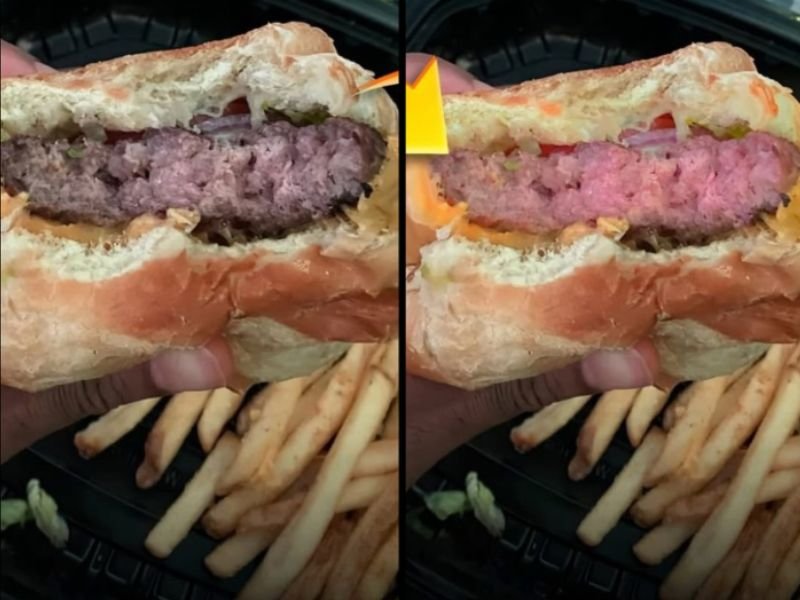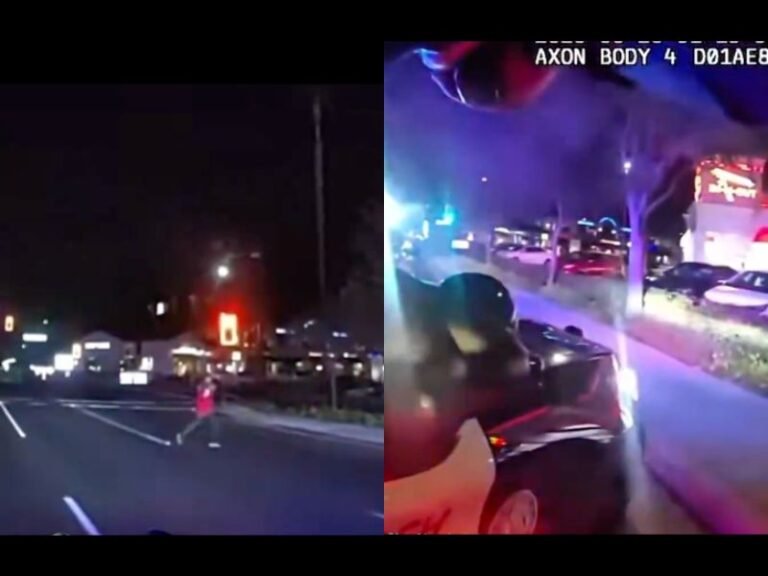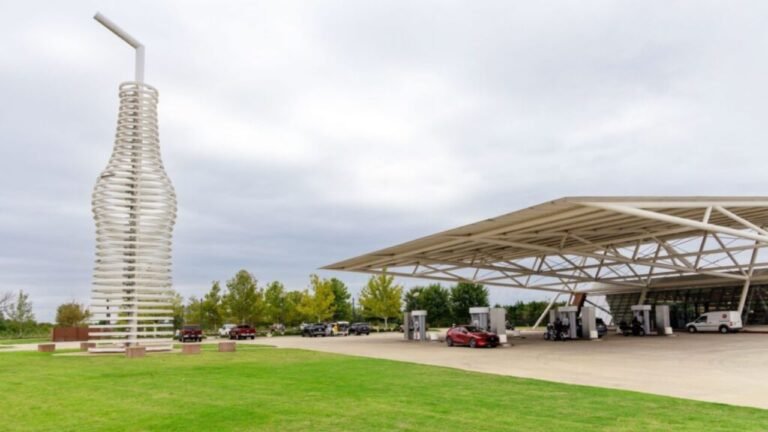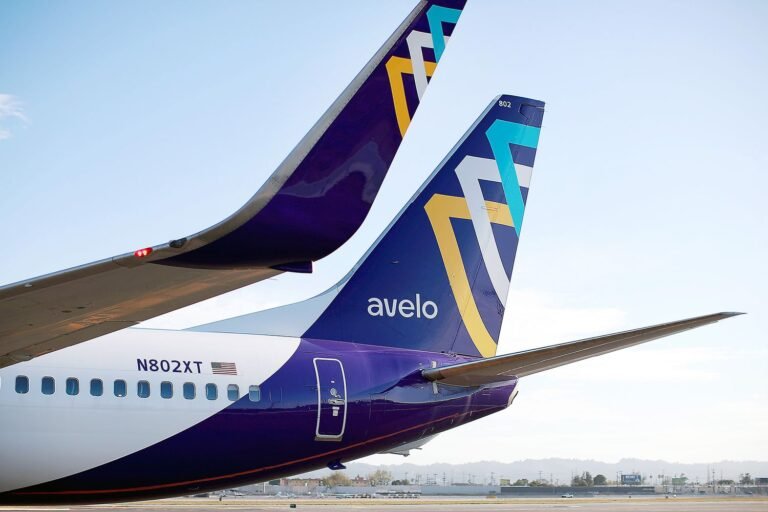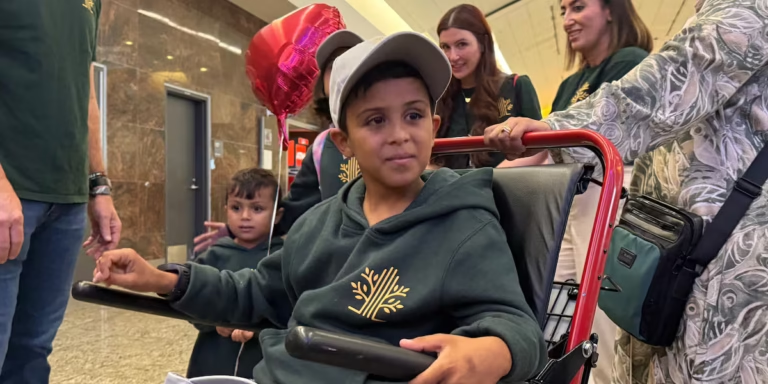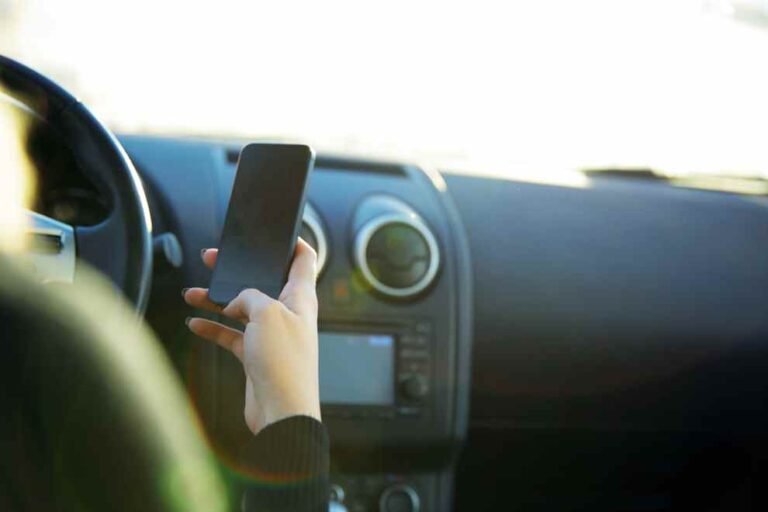People Reportedly Using AI-Edited Food Photos to Get Refunds on DoorDash and Uber Eats by Claiming Meals Were Undercooked
UNITED STATES – A growing number of online posts are raising alarms about a new tactic some customers are allegedly using to obtain fraudulent refunds from DoorDash and Uber Eats: AI-altered photos that make cooked meals look undercooked or unsafe to eat. The trend, shared widely across social media, has sparked concern among restaurants, delivery drivers, and fraud investigators.
The report circulating online shows a photo comparison of a burger that appears normal in one image and artificially altered to look raw and pink in the center in another. According to the post, people are generating these manipulated images to falsely claim the food arrived dangerously undercooked, prompting full refunds from delivery platforms.
How the Alleged Refund Scam Works
According to viral posts, users take a normal photo of their delivered meal and then use AI photo-editing tools to:
- Change the color of the meat to appear raw
- Add textures resembling undercooked food
- Increase shine or moisture to make items look unsafe
- Exaggerate color contrast to highlight “uncooked” areas
These altered images are then submitted through the food delivery app’s refund request system with complaints such as:
- “My food arrived raw”
- “Meat is undercooked and unsafe to eat”
- “This could cause food poisoning”
Delivery platforms typically issue refunds without requiring the food to be returned, meaning the customer keeps the order and receives full credit.
Restaurants and Drivers May Pay the Price
While fraudulent refunds may seem harmless to those attempting them, the consequences fall heavily on:
- Restaurants, which are often charged for refunded items
- Delivery drivers, who may receive reduced tip incentives
- Account holders, who could be banned if detected committing fraud
Some restaurants have already reported an increase in refund requests claiming undercooked meals, despite workers insisting their food quality standards remain unchanged.
Industry workers say the rise in AI tools makes it increasingly difficult for platforms to distinguish between:
- Legitimate complaints
- AI-generated fraudulent reports
Food Delivery Companies Have Not Yet Issued Official Statements
DoorDash, Uber Eats, and other delivery platforms have not yet publicly responded to the specific trend circulating online, though all maintain policies against fraudulent refund activity. Repeated refund abuse can result in:
- Account suspension
- Permanent bans
- Loss of promotional credits
Some users online argue that refund abuse harms the entire system, drives prices up, and unfairly penalizes restaurants that rely on delivery orders for revenue.
Social Media Reaction Is Strong and Divided
Many commenters expressed shock at how convincing the altered images appear. Others argued that platforms’ “no questions asked” refund models have made fraud too easy.
Common reactions included:
- Concerns about the impact on small restaurants
- Debates about food safety complaints
- Frustration from drivers who lose money during fraudulent claims
- Calls for delivery companies to install AI-detection systems
A few commenters admitted they were surprised by how realistic some AI-generated food edits looked, noting that older Photoshop scams were easier to identify.
What Happens Next?
Experts say refund systems across major delivery apps may need to be upgraded with:
- Digital forensics tools
- AI image authenticity detection
- Pattern-based fraud flagging
For now, both restaurants and drivers are urging customers to refrain from manipulating food photos, stressing that fraud increases costs for everyone involved.
If DoorDash, Uber Eats, or restaurant associations provide further statements, updates will be added to SaludaStandard-Sentinel.com.
To follow ongoing investigations and consumer safety updates, visit SaludaStandard-Sentinel.com.

